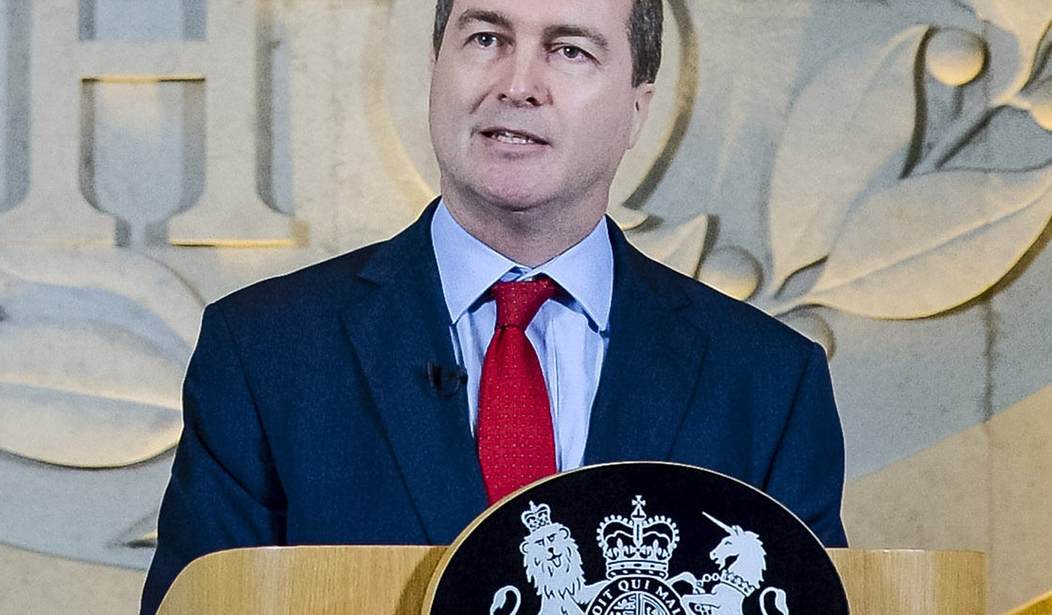A month ago, Fox News senior legal analyst Judge Andrew Napolitano claimed that three intelligence sources had informed him President Obama used a British intelligence organization to spy on then-candidate Trump’s associates.
Napolitano reported on his website:
Sources have told Fox News that the British foreign surveillance service, the Government Communications Headquarters, known as GCHQ, most likely provided Obama with transcripts of Trump’s calls. The NSA has given GCHQ full 24/7 access to its computers, so GCHQ — a foreign intelligence agency that, like the NSA, operates outside our constitutional norms — has the digital versions of all electronic communications made in America in 2016, including Trump’s. So by bypassing all American intelligence services, Obama would have had access to what he wanted with no Obama administration fingerprints.
When White House Press Secretary Sean Spicer cited the report during a daily White House briefing, international shock waves and furious denials from the British intel agency ensued:
The agency described the allegations first made by a former judge turned media commentator, Andrew Napolitano, as “nonsense”.
“They are utterly ridiculous and should be ignored,” a spokesperson for GCHQ said.
Fox News temporarily took Napolitano off the air until the dust settled. Yet when he came back two weeks later, Judge Nap stood by his story, saying “a lot more is going to come.”
A lot more did come Thursday in a new report published by The Guardian. The report indicates that Napolitano was on the right track: GCHQ and other European spy agencies did pass on incidental electronic surveillance (SIGINT) to the Obama administration revealing “contacts between members of Donald Trump’s campaign team and Russian intelligence operatives.” But according to the Guardian’s anonymous sources, the intelligence was passed on to the United States “as part of a routine exchange of information” — not at the behest of the Obama administration, as Napolitano had suggested.
So there are two versions of this story now, both based on anonymous sources.
The Guardian reports that the surveillance began in late 2015, when British spooks “first became aware in late 2015 of suspicious ‘interactions’ between figures connected to Trump and known or suspected Russian agents”:
Over the next six months, until summer 2016, a number of western agencies shared further information on contacts between Trump’s inner circle and Russians, sources said.
The European countries that passed on electronic intelligence — known as sigint — included Germany, Estonia and Poland. Australia, a member of the “Five Eyes” spying alliance that also includes the US, UK, Canada and New Zealand, also relayed material, one source said.
Another source suggested the Dutch and the French spy agency, the General Directorate for External Security or DGSE, were contributors.
It is understood that GCHQ was at no point carrying out a targeted operation against Trump or his team or proactively seeking information. The alleged conversations were picked up by chance as part of routine surveillance of Russian intelligence assets. Over several months, different agencies targeting the same people began to see a pattern of connections that were flagged to intelligence officials in the US.
According to The Guardian, intelligence sources in both U.S. and UK:
… acknowledge that GCHQ played an early, prominent role in kickstarting the FBI’s Trump-Russia investigation, which began in late July 2016.
One source claimed that U.S. intelligence was “very late to the game,” and FBI Director James Comey didn’t become interested until after the election:
Comey’s apparent shift may have followed a mid-October decision by the Foreign Intelligence Surveillance Act (FISA) court to approve a secret surveillance order. The order gave permission for the Department of Justice to investigate two banks suspected of being part of the Kremlin’s undercover influence operation.
According to the BBC, the justice department’s request came after a tipoff from an intelligence agency in one of the Baltic states. This is believed to be Estonia.
The Washington Post reported on Wednesday that the same order covered Carter Page, one of Trump’s associates. It allowed the FBI and the justice department to monitor Page’s communications. Page, a former foreign policy aide, was suspected of being an agent of influence working for Russia, the paper said, citing U.S. officials.
The application covered contacts Page allegedly had in 2013 with a Russian foreign intelligence agent, and other undisclosed meetings with Russian operatives, the Post said. Page denies wrongdoing and complained of “unjustified, politically motivated government surveillance”.
According to one of the Guardian’s sources, the investigation is making progress:
They now have specific concrete and corroborative evidence of collusion. This is between people in the Trump campaign and agents of [Russian] influence relating to the use of hacked material.
Carter Page, appearing on the Fox News’ The O’Reilly Factor Thursday night, decried the “false accusations” against him that are being pushed by Democrats, but said he was encouraged because the truth was beginning to come out about the surveillance scandal.









Join the conversation as a VIP Member